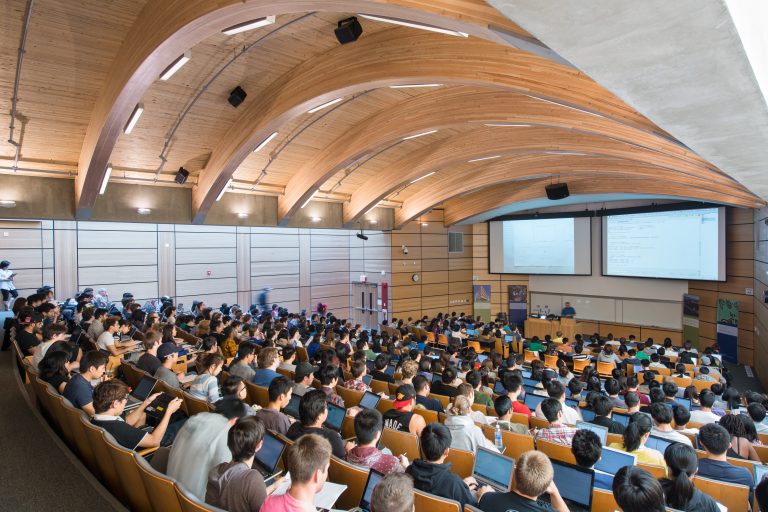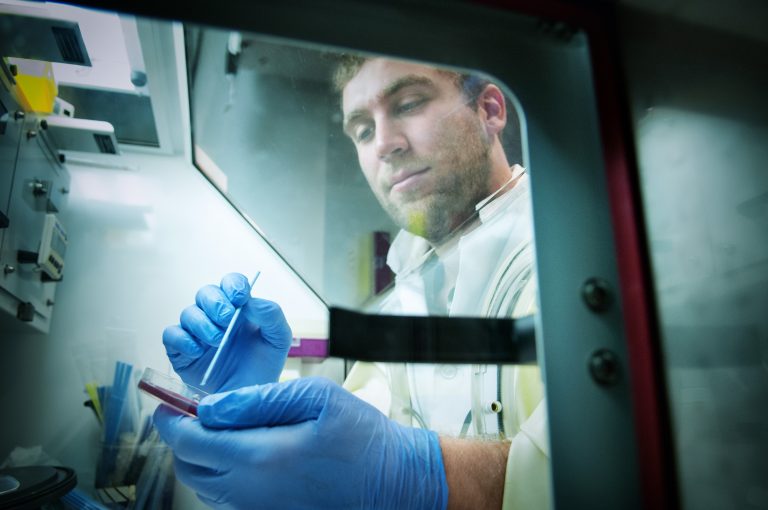In light of some of the concerns and questions we have received regarding the return to campus in September 2021, we asked Dr. Stephen Hoption Cann, a clinical professor from the School of Population and Public Health, for his answers to some of the most frequently asked questions we have heard from students.
These questions are not exhaustive of all of the questions students may have – for further information on UBC’s plan for returning to campus and more of the common FAQ’s, please visit the UBC Campus Return Plan website.
Should students returning for the 2021/22 Winter Session be worried about COVID-19 outbreaks on campus?
The daily total of new COVID-19 infections has been declining in BC since mid-April 2021 and the proportion of the population that have been fully vaccinated continues to increase. However, there have been variants of concern that can easily spread to individuals who are not vaccinated or not fully vaccinated. Therefore, for students to ensure their safety and the safety of others in the population, it is important that they obtain both doses of COVID-19 vaccinations. Those who are fully vaccinated with Canada-approved COVID-19 vaccines have a high degree of protection against most known variants of concern.
What are some things you would recommend students do to keep themselves and others safe once everyone has returned to campus?
Daily health self-assessments: A daily self-health assessment is required before attending campus.
Stay home if you are sick: If you feel sick stay home use the Thrive Health self-assessment tool for guidance. Follow the advice from Public Health.
Regular hand washing and sanitizing: Hand-sanitizing stations located at the main entry for each building (where building’s name signage is located) are refilled by Building Operations.
What are some precautions that UBC is taking to limit the spread of COVID-19 and prevent outbreaks?
Mandatory training: All faculty and staff currently working on or returning to campus must complete the mandatory online training. Contact tracing is carried out by Public Health Authorities.
What are some of the measures UBC will take if there are cases of COVID-19 on campus?
If the public health authority determines that there may have been high-risk contact with individuals, they will try and reach them (contact tracing). If the Public Health Authority cannot reach a contact by direct contact notification, a more widespread notification to identified groups may be carried out. The need for contact tracing is expected to decrease as more of the general population becomes fully vaccinated. As we move beyond the pandemic, COVID-19 will remain on the list of reportable communicable diseases-the list of diseases for which contact tracing is regularly used as a mechanism by Public Health Authorities to protect the public against communicable diseases.
If a student were to contract COVID-19, how would they attend lectures and complete schoolwork?
Anyone with a positive COVID-19 diagnosis may only return to UBC Premises if they have sought the advice of Public Health Authorities and have been instructed that it is safe for them to return to public settings. As per departmental polices, students may be able to attend classes remotely or receive supplemental work during the time of self-isolation.
Will people be spaced out/distanced in lecture halls and labs?
All spaces will be fully reopened, unless specific rules within departments modify these rules.
Do we have to wear masks all the time on campus?
By September 7 (BC’s Restart Plan Step 4), there will be no general requirement for persons to wear masks when indoors on UBC Premises unless there are specific rules in an area that require them. Wearing a mask in public indoor settings is a personal choice.
Will surfaces be sanitized on campus?
Building services works to ensure that high contact areas like door handles, handrails and faucets are cleaned regularly throughout the day.
Vaccination Questions:
We also asked Dr Mahyar Etminan, an Associate Professor from the Departments of Ophthalmology and Medicine for his answers to the following questions.
Does the vaccine effectively protect against different COVID-19 strains?
The best evidence we have suggests that those who are fully vaccinated (2 doses) have a higher likelihood of staying COVID free meaning less hospitalizations or deaths. Those who contract Covid with 2 doses will experience milder diseases.
What would you say to anyone that might be scared/refuse to get vaccinated?
We have good data on greater than 300 million people around the world with respect to safety and efficacy. The data suggests that the benefits of getting the vaccine far out weighs its rare adverse events
What are common misconceptions or myths about this vaccine and what do you have to say about them?
The vaccine does not contain the Coronavirus.
The vaccine does not change the genetic machinery of our DNA/cell.
There is no biologically plausible mechanism that they can cause cancer.
The vaccine is not magnetic (believe or not that is out there too)
What percentage of students (including international students) do you estimate will be fully vaccinated by September, and do you think that amount is enough to prevent outbreaks?
Sorry, I don’t have any data on this. I would say if fully vaccination rates is 70 percent or higher in the campus then the chances of a spread or a new epidemic at UBC is substantially lowered.
Does everyone have to be vaccinated to be on campus?
However, I think it is highly advisable that students, faculty and other staff are vaccinated to prevent another wave of the disease and to control the low number of cases that we are enjoying right now.
If I’m vaccinated, do I have to abide by COVID guidelines on campus?
Here is what I found in the rules (below). I would say if you are vaccinated but are in a crowded part of the campus it might be wise to wear a mask. However, if you are fully vaccinated and are in small group settings with good social distancing then I would say it is not required. But that’s just my own opinion.
Non-medical masks: Non-medical masks are recommended in indoor common spaces for all people 12 and older who are not yet fully vaccinated. Proof of vaccination is not required. You are fully vaccinated 14 days after your second dose of vaccine.

